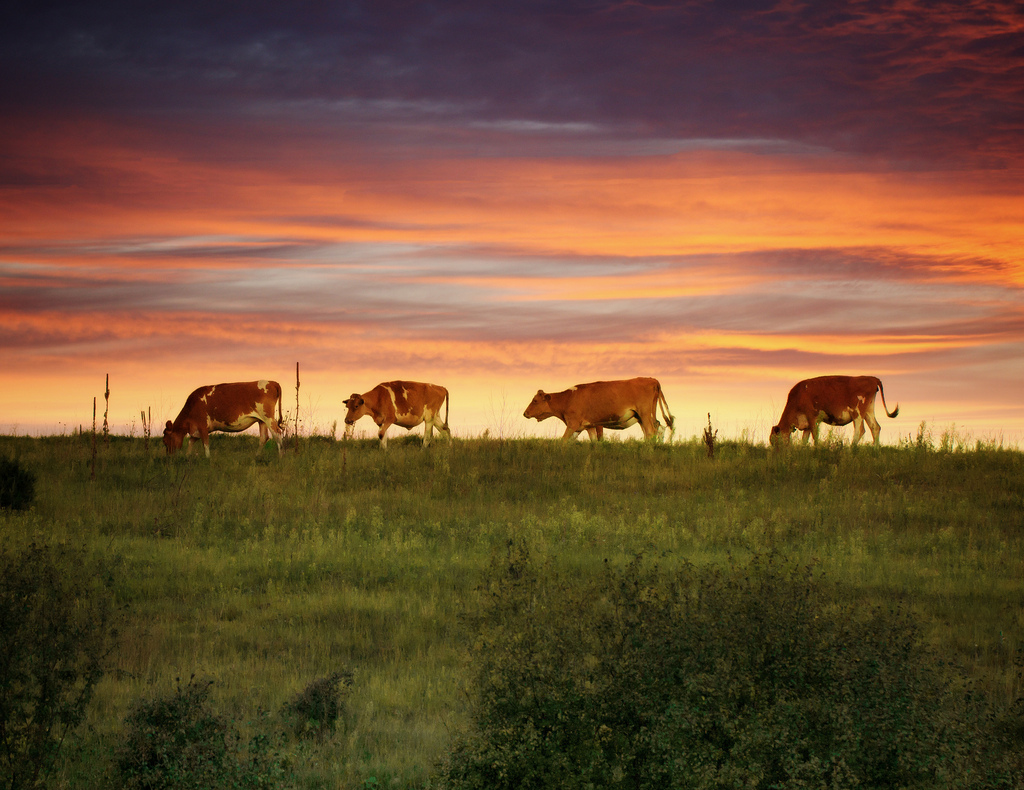
The chief executive of the National Beef Association (NBA) says Brexit offers a great opportunity for Britain's beef farmers.
Chris Mallon, who has been the NBA chief executive since 2012, told FarmingUK that leaving the European Union should allow British producers to replace imported beef with meat produced locally to the highest standards in the world.
“We are a country that depends on imports at the moment. We have the opportunity after Brexit to replace that with British beef,” said Mr Mallon, who was talking to FarmingUK during the annual Beef Expo event at Stoneleigh in Warwickshire.
The NBA's Beef Expo is an event for the very best in both commercial and pedigree cattle in Britain.
It showcases some of the finest examples of British breeding and Chris Mallon said that the quality of British beef is what should make the industry confident about seizing the challenges and opportunities that would emerge from the decision of the United Kingdom to withdraw from the EU.
“We produce a very healthy and high quality product in this country,” Mr Mallon said.
“That is what consumers want. The British consumer is not going to change overnight from being a well-informed consumer to just buying anything,” he said when asked whether he was concerned about possible trade deals with countries outside the EU opening the UK market to lower quality beef.
Low welfare, low standard
Some figures in the farming industry have expressed their fears that the Government may be prepared to open up Britain to imports of low welfare, low standard food in return for free trade deals.
“We don't want things like hormone beef here," said Mallon. "British farmers want to maintain standards and be world beating. Our Government has to be strong enough to say no to these products. If hormone beef does come in, then we have to make sure that it is labelled clearly so that consumers can see exactly what it is.”
A report by AHDB earlier this year pointed to South America as a possible post-Brexit threat to British beef.

“With the region still holding much untapped potential for increasing productivity, it seems inevitable that the volumes of this low-cost beef on the global market place will increase. This could affect UK producers directly, by competing on the home market, or indirectly via UK export competition,” it said.
Fall in value of Sterling
The fall in the value of Sterling since the vote to leave the EU has, ironically, helped British exporters, and AHDB's David Swales has pointed to new opportunities for the meat industry to export to other markets following Brexit.
“There is a potentially significant opportunity going forward to establish trade deals where there is growth in the middle class," he said recently in one report.
“At this sort of income level, these consumers will adopt a more Westernised diet, they will have more flexibility over what they spend and will start to eat both meat and dairy products more often.
“In the Asia-Pacific area the proportion of these consumers is set to raise six-fold, at the moment there is only one fully-ratified existing agreement in this area, between the EU and South Korea, so there could be major potential for UK trade in the future,” he said.
Big opportunities in domestic market
Chris Mallon said that export opportunities for the beef industry would be welcome but he felt that the bigger opportunities for British beef producers following Brexit were to be found in the domestic market.
“Exports are great, especially for the fifth quarter, but we have the best market for beef in the world here in the UK. We need to ensure that it is British beef that supplies that market.”
Mr Mallon said that the UK was currently about 70 per cent self-sufficient in beef, so significant volumes of imports found their way onto consumers' plates. “There is another 30 per cent there that British farmers could be supplying,” he said.
Driving grain prices
The agricultural team at Barclays Bank provided its own take on post-Brexit trade issues in a short analysis in Beef Expo's event programme.
“The effect [is] already seen (positively) in weaker Sterling making imports of beef more expensive to buoy the domestic trade, but also conversely driving up grain price for those needing to buy in grain to finish cattle,” it said.
“Likewise, negotiating trade deals - not only for export to ensure British beef is competitive on a global market - but also looking closely at the import side of the equation as far as beef is concerned.
“This will be important so that UK produced beef is not at a competitive disadvantage to other world producers, especially with Ireland and other countries, notably South America, who have previously had limited access to UK markets under the wing of the European Union,” said Barclays.
This year's event attracted more than 22 breed societies and more than 250 cattle. Some 120 exhibitors took stands at the show.
The event included the National Commercial Cattle Show and the South Devon Performance Championships. It also included the Future Beef Farmer Challenge.
